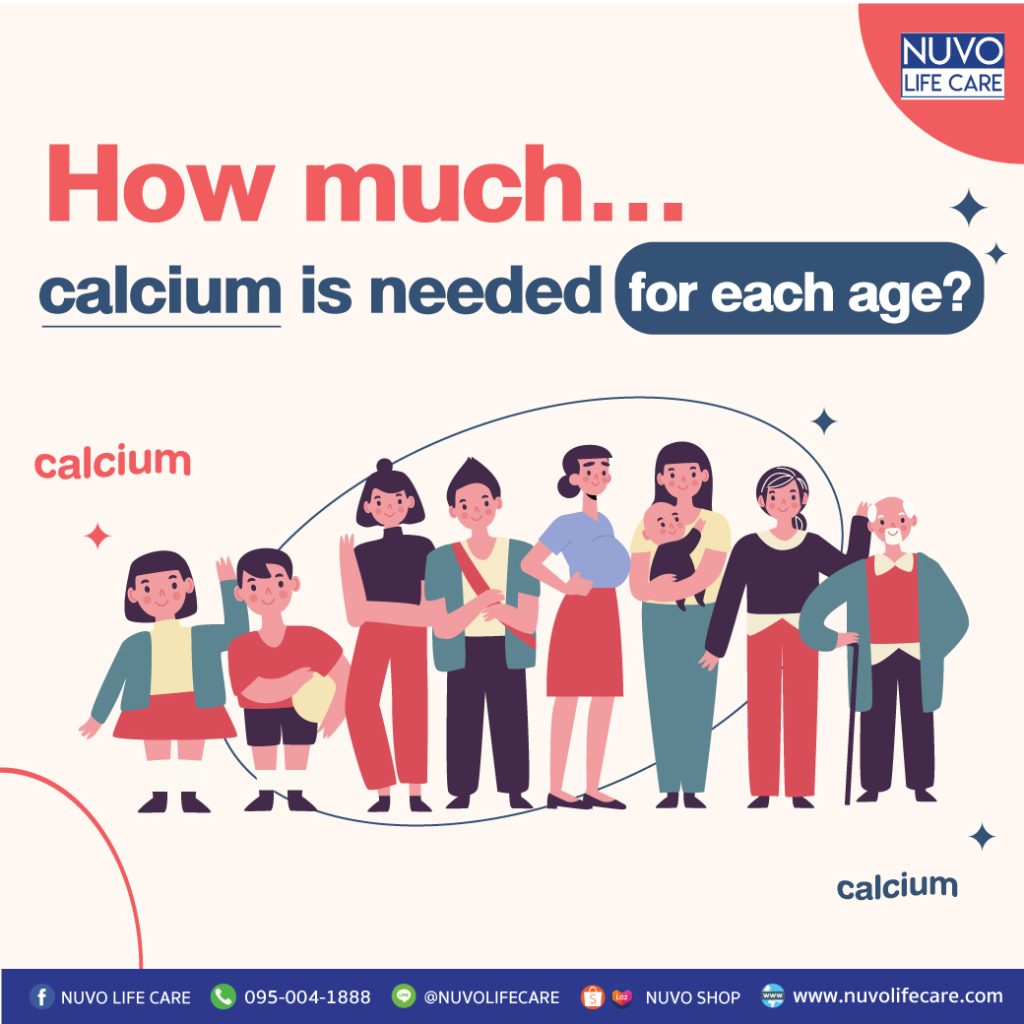Articles for infertile couples
How much…calcium is needed for each age?
‘Calcium’ is an important nutrient for the body’s bone structure. If people don’t get enough calcium, it can lead to the risk of osteoporosis and brittle bone.
Whether kids, adults, or elders, they all need calcium. But calcium intakes recommended per day for each age are different.
How much calcium is needed for each age? Why? Let’s see
- Childhood
Children between 3-10 years old need 600 – 800 mg. of calcium per day to strengthen their bones, teeth, and other parts of body structure.
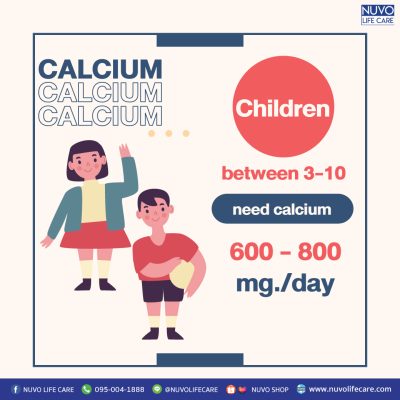
Children at this age need nutrients for constant growth as their bodies are developing to adolescence and growing so fast. If they do not get enough calcium, it can increase the risk of rickets, weak bones, and easily fractures.
- Adolescent
Age between 11-24 years old needs 800-1,000 mg. of calcium per day. It’s a time when the body is having bone remodeling. If the body gets low calcium than the body’s needs, it can result in problems such as rickets, bone pain, and muscle pain.
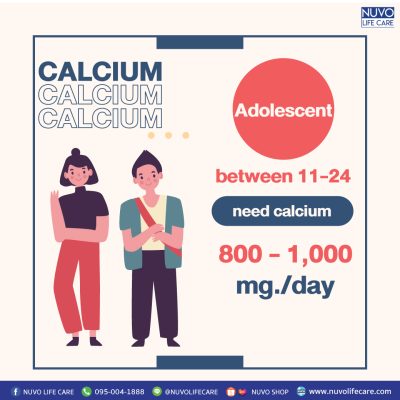
Adolescence is the fastest-growing period. The body will grow until the age of 20 and stop when over 25. The body will grow slower. Adults of working age will regularly need a proper amount of calcium.
- Pregnant-breastfeeding women
A pregnant woman needs higher amount of calcium than normal people. They need 1,200 – 1,500 mg. per day as they need to pass on the nutrient to the baby for the baby’s development.
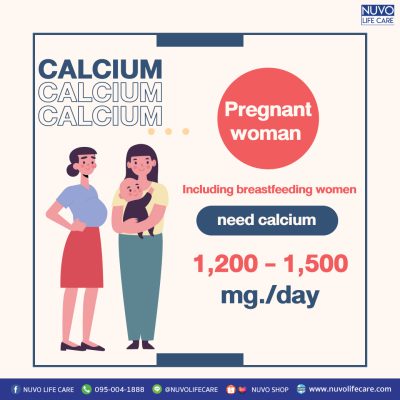
Pregnant women have high risk of calcium deficiency. Calcium does not only help in the baby’s development but also prevent hypertension in pregnancy and reduce the risk of bone disease or osteoporosis in the future.
- Middle age to elder
When you get older, the body will lose more calcium. If the body does not get enough calcium, it will risk bone disease. Elders need 1,500 mg. of calcium per day.
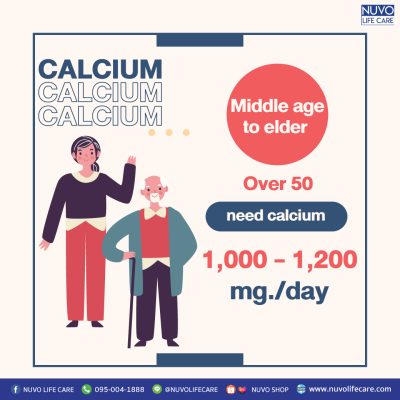
Especially women in menopause, due to the decrease in estrogen hormones and the effectiveness of vitamin D production decreases with increasing age. Therefore, they tend to have a high chance of osteoporosis.
แคลเซียมเจลลี่ | แคลเซียม แอลทรีโอเนต | แคลเซียม | นูโวแคลเซียม | calcium jelly | แอสต้าแซนติน | สาหร่ายแดง | astraxanthin | แอสต้าแซนธิน | calcium l-threonate | แคลเซียมคนท้อง | nuvo calcium jelly | นูโวแคลเซียมเจลลี่ | บำรุงกระดูกและข้อ | ไวต้า เอฟ เจลลี่ | vita-f jelly | รีโปร ไวต้า เอ็ม เอ็กซ์ตร้า | repro vita-m extra | รีโปร ไวต้า เอฟ | repro vita-f | แคลเซียมเจลลี่ | calcium jelly | แอสต้า โปร พลัส | asta pro plus | calcium age | calcium age | calcium age

